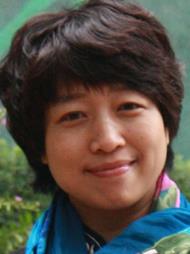Beili Xiang, Ph.D.
Faculty of Education
Beijing Normal University
19, Xinjiekouwai Street, Beijing 100875, P.R.China
Mobile: ++(86)137-1809-4790
Email:blxiang@bnu.edu.cn
Web:http://fe.english.bnu.edu.cn/faculty/facultyprofile/inquiry/57983.htm
Blog (personal):http://blog.sina.com.cn/xiangbeili
Blog (with students) – Educational Dialogues:http://blog.sina.com.cn/u/1254969015
Beili Xiang is Associate Professor in Faculty of Education at Beijing Normal University, one of the Council Members of Women Professors’ Association of BNU where she co-hosts the BNU Women Professors’ Forum, a visiting scholar in the Graduate School of Education at Stanford University in 2013.
Her Research Interests include:
- Citizenship Education
- Participatory Management
- Gender Studies
- John Dewey’s educational thoughts in a perspective of liberalism
- Action Research
- Narrative Inquiry
- Confucianism and Taoism in Education
At the early stage of her research career as a graduate student, she studied value judgment and paradigms in comparative education. By borrowing profound cross-disciplinary ideas, she clarified the paradigms as “value-free” (positivism) and “value-laden” (universalism, relativism and multiculturalism). To enrich a constructive paradigm of multiculturalism, the important principles were put forward to be the illumination of standpoint, the openness to the alternatives of interpretations among which each interpretation is viewed as a hypothesis instead of being treated as the sole truth. Even some outsiders’ preconceptions and mis-readings might get some positive meanings as they lead to new findings which are sometimes blind to the insiders. The application of “empathy” is aimed at minimizing the prejudice in studying the cross-cultural educational issues. During this process, a bridge of relational connection is established between the past and present, east and west. A key point would be the principle of “keeping harmony in diversity” which was once expressed by Confucius two thousand years ago, is also declared here in a similar way in the study of comparative education.
The exploration of these theoretical construction adds a lot of joy in her research life. Followed by an even more exciting inspiration that several ideas which are meaningful in an academic world, are always worthy as philosophies in a life world. For example, to respect and accept diversity is not only a theoretical proposition, but also a practice in both a private domain and a public domain.
However, diversity is not easy for one to respect and accept. It would be helpful for one to understand diversity based on contextualizing human’s situation and educational issues in historically political, cultural and systematic social construction. Moreover, if diversity remained on an unjust social basis, harmony might downgrade to be a fragile hallow echo. During the inquiry of action research, she tries the way on which the ends and means meet to create a more just and sane society by building up an equal and collaborative social structure between researchers and participants, teachers and students so as to improve the educational issues together. During this process, diversity is not only to be accepted and respected, but also to be a resource for one to learn from. It seems that harmony needs the wisdom of identification, and benevolence to be inclusive.
It is always being a long way on which “knowledge” transfers to be “mind”. By walking on this way back and forth between academic and life world, she sees that knowledge and action alternates.

